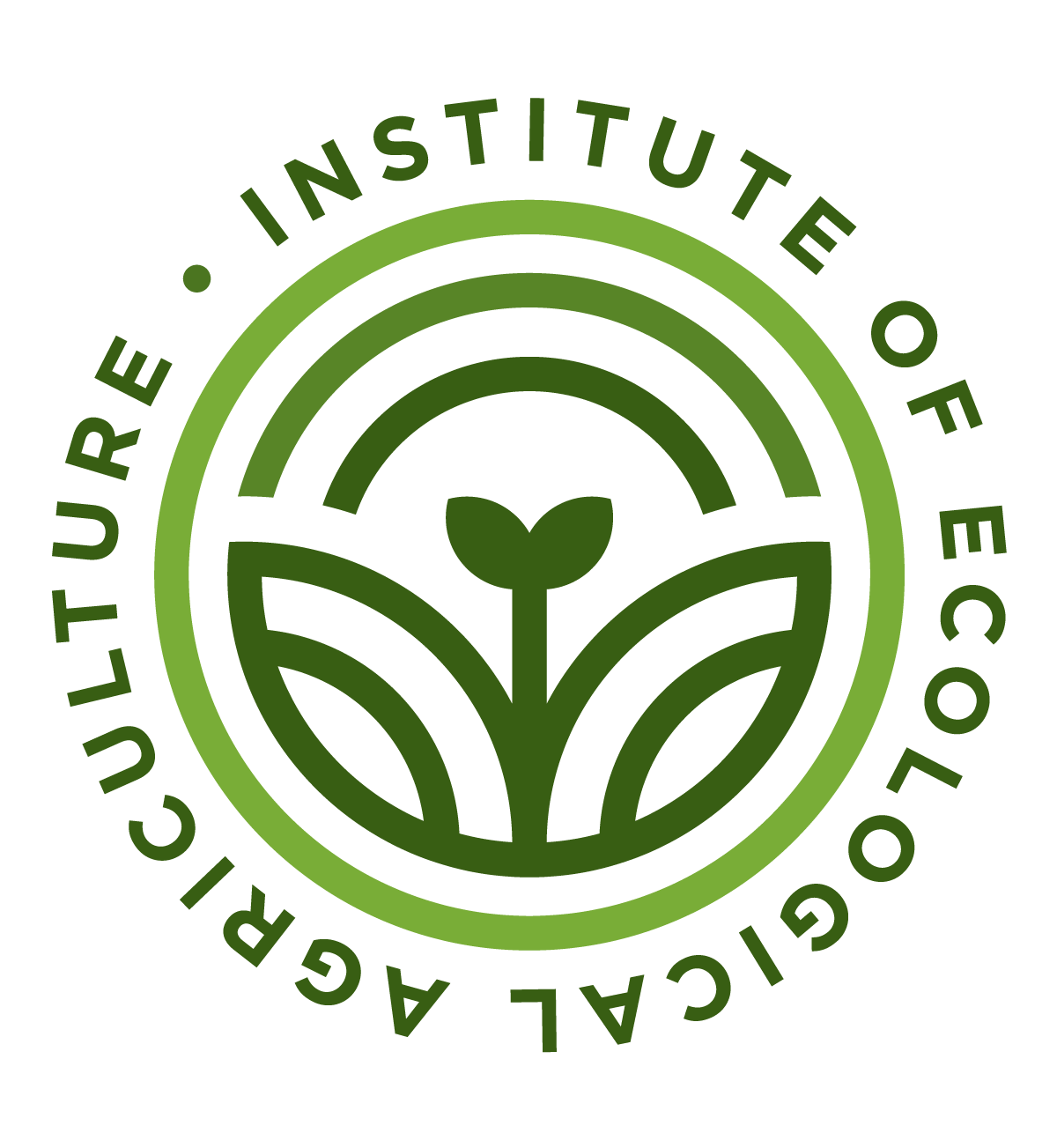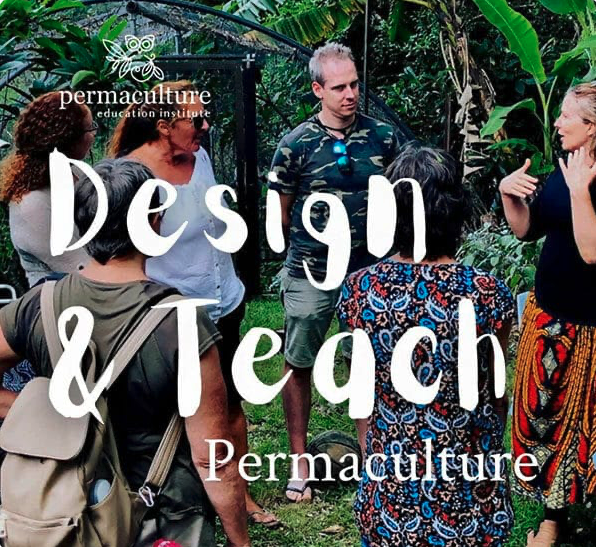
Courses for agricultural regeneration
At the IEA, we have a framework called the ‘knowledge circles.’ These are theoretical and practical bodies of knowledge used to discern where key professional development and learning opportunities might be for members and accreditees. These knowledge circles overlap and are interconnected. They are not the sole pillars of knowledge on agricultural regeneration, but simply a framework to help us explore our own understanding of agriculture and food systems.
Below, we have organised short courses relevant to agricultural regeneration into each of the knowledge circles. This is to help practitioners identify pathways to continue building their knowledge across these circles if they would like to pursue further learning.
Holistic thinking: seeing the big picture
Holistic thinking is about seeing the bigger picture and understanding how parts are interdependent and interconnected in complex and adaptive ways. For example, viewing a farm as nested within a bioregion that has many social and ecological relationships, not just as a place to grow crops or graze cattle. If you were dealing with pests, a holistic approach may consider promoting natural predators, planting companion crops, improving soil health, and improving local biodiversity rather than using chemical pesticides. But holistic thinking has a much larger impact on the way we see the world than simply considering more elements. Below are courses that will help you learn about seeing the world holistically.
The Regenerative Practitioner Series is an intensive deep dive for practitioners who are called to take their capability to practice regenerative work to the next level.
Holistic Management. Helping to regenerate land and communities, Inside Outside Management offers training in the principles of Holistic Management.
Human ecology. IEA Vice President, Kerry Cochrane, runs an 8 week online course in human ecology and holistic thinking.
Ecological literacy and regenerating nature relationships
Ecological literacy is about having the ability the read landscape processes and cycles, and understand flora and fauna native to particular places. It includes reading animal behaviour and learning how to relate to animals in positive ways. This is interconnected with the practical ability to observe nature and regenerate relationships in the landscape, e.g., the carbon cycle, water cycle, or increasing native habitat and biodiversity. Below are short courses that will help build your ecological literacy and ability to regenerate positive relationships in natural or agro-ecological systems.
Complete Urban Farmer. Grow a productive garden in any space. Produce organic veg, fruit, herbs, eggs and honey on your very own urban farm.
Permaculture Educators Program. Learn how to design abundant and regenerative permaculture systems, become an excellent permaculture teacher and facilitator, and start your own permaculture enterprise. The program is led by award-winning teacher and designer, Morag Gamble, who founded the Permaculture Education Institute and has three decades of permaculture education experience around the world.
Geoff Lawton Permaculture Design Certificate. The 72-hour Permaculture Design Certificate (PDC) Course allows you to be the change you want to see in the world. Based on Bill Mollison’s Permaculture Designers’ Manual, it provides skills and solid knowledge in Permaculture design.
Grazing and Farming for Profit School. Our immersive 6.5-day courses gives you the power to transform your farm and business management practices. Master essential skills in finance and business, grass budgeting and grazing charts, unlock the secrets of healthy soil, and maximise every drop of rainfall. But this is more than just knowledge – it’s about a mindset shift that fuels success.
CERES Permaculture Design Certificate. Learn permaculture design and create thriving landscapes, households and communities. 100+ hours of learning and hands-on design experience.
Holistic Management. Helping to regenerate land and communities, Inside Outside Management offers training in the principles of Holistic Management.
David Holmgren Permaculture Design Certificate. Build community, expand your knowledge, and design your life and land with guidance from permaculture co-originator David Holmgren, Beck Lowe and a team of inspiring permie practitioners and elders.
Human ecology and regenerating human-nature relationships
Human ecology is about understanding the ways humans interact with their environment, and how human mindsets and values impact landscapes and other animals. It is central to agriculture because it is a livelihood that is completely intertwined with the lives of other species. Human ecology is interconnected with the practical ability to create mutualism and reciprocity between people and nature (e.g., good animal welfare) and navigate environmental change (e.g., preparing for natural disasters). Below are short courses that will help you learn about human ecology and regenerating human-nature relationships.
The Regenerative Practitioner Series is an intensive deep dive for practitioners who are called to take their capability to practice regenerative work to the next level.
Milkwood Permaculture Living. Inside your 12-week online course, you'll learn how to use permaculture thinking, design, skills and habits to transform your everyday for the better, and your future, too. Get ready to create abundance, become more resilient, thrive where you already are, and make some serious climate-positive changes.
The Herbal Apprentice. An in-depth learning experience exploring ecosystem health through herbal practice.
Human ecology. IEA Vice President, Kerry Cochrane, runs an 8 week online course in human ecology and holistic thinking.
Equity and power in agriculture and regenerating human relationships
Agricultural regeneration is not apolitical and it is important that educators, consultants, and farmers can think critically about issues of equity and power in agricultural production and food distribution, e.g., land ownership and access, market power, gender inequality, and Indigenous sovereignty. There are many practical skills that can help regenerate human relationships in agriculture so they are more equitable. This includes building community, creating opportunities for peer learning and support, participating in advocacy, and creating food systems based on food sovereignty, e.g., community supported agriculture. Below are short courses that will help you learn more about the social side of agricultural regeneration.
The Regenerative Practitioner Series is an intensive deep dive for practitioners who are called to take their capability to practice regenerative work to the next level.
Growing on Country is a course for anyone in any field (from permaculture, regenerative agriculture, syntropics, horticulture, nursery work, landscape design, community gardens to backyard pottering), who wants to be an ally when growing, gardening or engaging with Indigenous plants, people and communities on unceded land.
Queer Regenerative Design. Regenerative design frameworks such as permaculture can be an incredible means to create equitable systems that care for community and the planet. Regenerative design has so much to offer in terms of tangible systems design support to Queer and other diverse and vulnerable communities.















